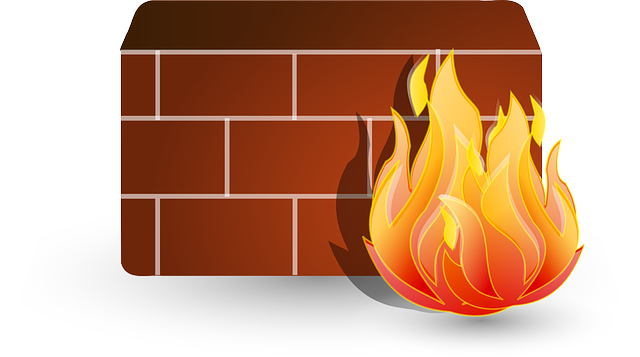Security is one of the most important investments that should be made immediately after creating a WordPress.website As unprotected WordPress sites are usually believed to be vulnerable to attacks, hardening a WordPress website should be seen as a necessary task soon after the website is created.
Unfortunately, many ignorant WordPress users see no need to harden their website security until they become a victim of cyber-hack. Some also wait until they get popular before hardening, popularity that may not be made possible by hackers.
Table of Contents
What is WordPress Website Hardening?
WordPress hardening is the application of necessary security measures to a WordPress website to protect it from hackers.
Hardening a WordPress website requires some time and knowledge, not experience. You have the time and the knowledge is what you will be learning in this article.
Types of WordPress Vulnerabilities and Threats
Most vulnerabilities explored to wreak havoc on WordPress websites are usually the user's faults. Here are the most threatening recent attacks on WordPress.
- Brute Force Attack – Brute Force Attack involves using multiple trials and errors to guess a password correctly. The guesses are made using powerful algorithms that guess passwords according to some rules. Though difficult to execute, a Brute Force Attack has a success rate and is one of the most practiced threats in WordPress.
- DDoS Attacks – Distributed Denial of Service (DDoS) attacks are enhanced forms of Denial of Service (DoS) attacks that work by sending voluminous requests to the website server simultaneously. Once the server receives more requests than it could handle, it becomes slow and finally crashes.
- Outdated WordPress/PHP versions – WordPress patches security vulnerabilities in new updates, which means users on the old versions are vulnerable to unpatched fixes.
- SQL Injection – SQL injection is one of the worst hacks to which to fall victim. It manipulates SQL queries through a web form, such as contact forms and login forms. Although SQL injection has a low success rate, some amateur hackers still practice it, and sometimes, someone falls prey.
Benefits of WordPress Security
What are the advantages of a hardened site? When you take the right security measures on a WordPress site, here are the benefits you should expect:
- Optimize Performance: Hackers never break into a website for a good reason. DDoS attacks, for example, flood a website with traffic so legitimate users have no access. With good security measures, DDoS attacks can be prevented, hence, optimum performance.
- Avoid Google Penalty: Offensive content is usually published, or malicious links are injected when a website gets hacked. These may go against Google guidelines and subsequently lead to a penalty.
- Protect user information: Website users trust the website owner and give out their emails. Would it be good if the web owner paid back by leaving the website unprotected and the users at great risk? Surely no.
Ways to Hardening WordPress Website Security
Hardening a WordPress website is not a five-minute task like the WordPress installation. It is a process that goes on forever. The moment one refrains from securing the website, the website is dead.
Here are the steps to be practiced while hardening a WordPress website's security.
Update WordPress Frequently
The core WordPress and most of its themes and plugins are extremely safe and are no-go areas for hackers. However, hackers choose to find other minor vulnerabilities that they can exploit to compromise a website's security.
A certain study discovered that outdated plugins, including the core WordPress themes and important plugins, cause 54% of all security vulnerabilities in WordPress.
This calls for frequent CMS updates, besides updating the WordPress CMS, the plugins, themes, and all installed extensions. The PHP and server must be the latest versions and extremely secure.
Use and Enforce Strong Credentials
Everyone likes to create specific, easy-to-remember passwords. These passwords are good and serve their purpose, except a hacker can easily attack them. Using Brute Force, these passwords can be cracked without much effort.
To avert the dangers of using a weak password, you must use a strong password, and other users on the site must also use strong passwords.
A plugin like “Force Strong Passwords” does this perfectly to enforce the usage of other users on the site.
Use a Web Application Firewall

A web application firewall makes it easy to identify and block out hackers before they reach a website to cause harm. It tracks IP addresses and identifiers attached to every internet-enabled device. It checks if the IP address has been formerly used for malicious purposes; if it has, access to the website will be disallowed.
The Sucuri Firewall is a popular choice for a web application firewall. Apart from filtering IPs, Sucuri Firewall also provides all-around security tips that make you spend less on other security tools that already cost a fortune.
Disallow Plugin Installations
Sometimes, users install plugins to complete an instant task without worrying or caring about the lasting effects it could have on website security.
It would be best to start by editing the config.php code or using a plugin to achieve this.
Related: Online Security Tips for Kids
Use a Secure Protocol
Using the Secure Sockets Layer (SSL) makes a WordPress website more secure because every information passed over SSL has encryption.
This is important when transporting sensitive information like credit card details, usernames, and passwords over the internet. Once the SSL implementation is available on a website, it loads with HTTPS instead of HTTP. Thus making the webpage more secure.
Use Two-Factor Authentication (2FA)
Enabling 2FA should be mandatory, as it is very effective in locking hackers out. 2FA involves providing other information exclusively available to the users before they have the main login access.
With 2FA enabled, even a hacker with a username and password cannot access the account. To use 2FA with WordPress, a 2FA plugin must be installed. Some popular WordPress plugins for 2FA include:
- Clef
- Authy
- Google Authenticator
- Rublon 2FA
Backup the Website Regularly
No matter how much effort is put into hardening WordPress security, you can not overestimate the importance of regular backups. A backup gives the relief. You have the assurance that you can recover all your website data safely if the website suffers from a hack.
It is very easy to back up WordPress and instructions on how it could be backed up are available on the official WordPress website. If that looks burdensome, a plugin like BackupBuddy is highly recommended.
Some plugins back up the website daily, while others must be manually configured.
Read Also: Best VPN for Gaming You Should Consider in 2020
Ways to Harden Your Website Security: Frequently Asked Questions
How can I harden my website security?
Here are some key website hardening strategies:
- Keep Software Updated: Ensure your website's content management system (CMS), plugins, themes, and server software are updated regularly. Updates often patch security vulnerabilities that hackers might exploit.
- Use Strong Passwords and Two-Factor Authentication: Implement strong, unique passwords for all website accounts and enable two-factor authentication for an extra layer of protection.
- Secure Your Server: Choose a reputable web hosting provider that prioritizes security. Regularly review and update your server configurations to address potential weaknesses.
- Implement a Web Application Firewall (WAF): A WAF acts as a shield, filtering out malicious traffic and preventing common attacks like SQL injection and cross-site scripting (XSS).
- Regular Backups: Maintain regular backups of your website's data. In case of an attack, backups allow you to restore your website quickly and minimize downtime.
- Secure User Accounts: Enforce strong password policies for user accounts on your website. Consider limiting login attempts to prevent brute-force attacks.
- Stay Informed: Proactively stay updated on the latest website security threats and best practices.
How do I maintain website security?
Website security is an ongoing process. Here's how to maintain a strong security posture:
- Regular Security Scans: Schedule regular security scans to identify website code and configuration vulnerabilities.
- Patch Management: Promptly address any vulnerabilities identified through scans by installing necessary security patches.
- User Education: Educate website administrators and editors about secure coding practices and how to identify phishing attempts.
- Monitor Activity Logs: Monitor your website's activity logs for suspicious activity that might indicate a security breach.
What are the benefits of website hardening?
By hardening your website security, you can:
- Reduce the Risk of Hacking: A robust security posture makes your website less vulnerable to cyberattacks.
- Protect User Data: Strong security safeguards user data like contact information or login credentials.
- Maintain Website Reputation: A secure website fosters trust with your visitors and protects your brand image.
- Minimize Downtime and Costs: Security breaches can lead to website downtime and financial losses. Hardening your website helps prevent these disruptions.
By implementing these website hardening practices and maintaining good security hygiene, you can significantly reduce the risk of website attacks and ensure a secure online presence.
Final Words
The above steps are vital to ensure WordPress security is no match for the pain, which is if one falls victim to an attack. Many website owners assume their website is too small to fall prey to or hope never to get hacked.
However, hackers would target the easiest and not the best. Instead of hoping one never gets hacked, why not try all the steps of hardening a website's security and get an obvious increase in security?
INTERESTING POSTS
- The Ultimate WordPress Security Guide
- 11 Most Common WordPress Attacks [MUST READ]
- How To Prevent A DDoS Attack On Your WordPress Site
- How To Secure And Protect A Website [We Asked 38 Experts]
About the Author:
Chandra Palan is an Indian-born content writer, currently based in Australia with her husband and two kids. She is a passionate writer and has been writing for the past decade, covering topics ranging from technology, cybersecurity, data privacy and more. She currently works as a content writer for SecureBlitz.com, covering the latest cyber threats and trends. With her in-depth knowledge of the industry, she strives to deliver accurate and helpful advice to her readers.
Daniel Segun is the Founder and CEO of SecureBlitz Cybersecurity Media, with a background in Computer Science and Digital Marketing. When not writing, he's probably busy designing graphics or developing websites.








The iThemes Security plugin will handle most, if not all, of these for you (and then some). And it’s free. I’ve been using it for years.`